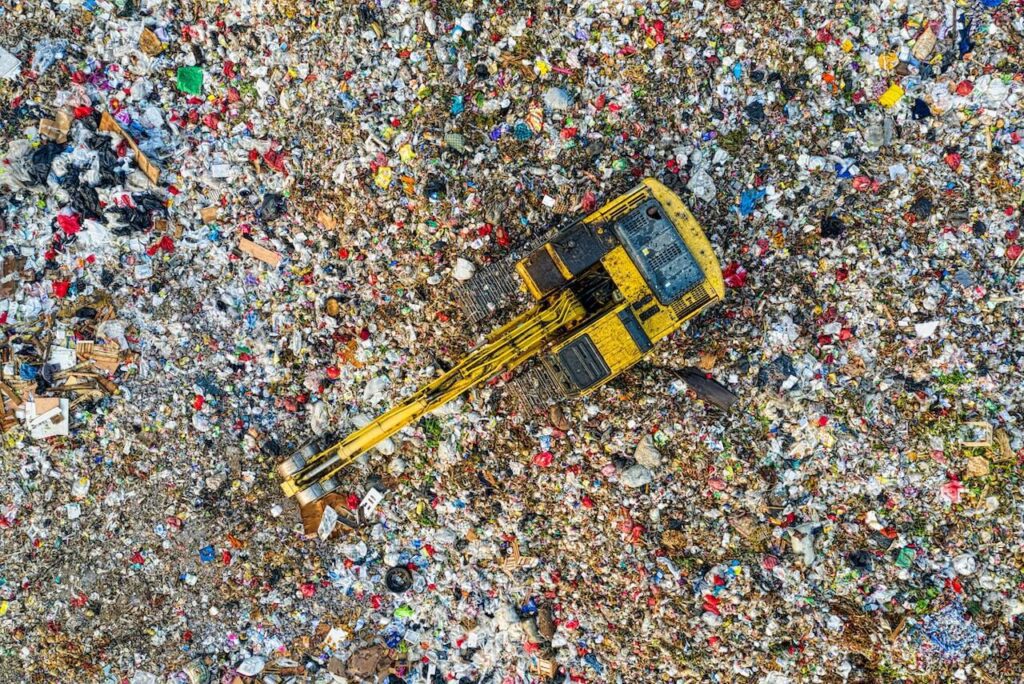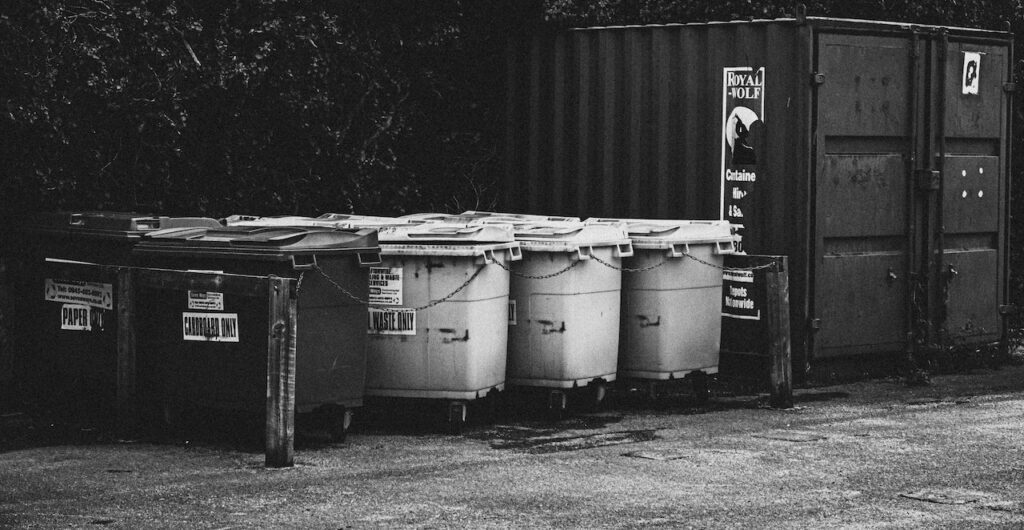Waste Disposal Regulations for UK Businesses 2025
Businesses across the nation have to juggle various waste disposal regulations daily. In this blog, we’ll delve into the nitty-gritty of UK waste regulations, tackling everything from recyclable materials to the environmental protection act 1990.
So, buckle up, and let’s explore the fascinating world of waste disposal!
Store Waste Safely and Securely
First and foremost, businesses need to store waste safely and securely. This involves segregating different types of waste, including general waste, commercial waste, hazardous waste, and recyclable materials paper.
Properly storing waste electrical and electronic equipment (WEEE) is also crucial, as this type of waste contains toxic substances. To ensure compliance, store waste in designated containers with appropriate signage to prevent contamination or spillage.
Waste Duty of Care
The Waste Duty of Care, outlined in the Environmental Protection Act 1990, is the backbone of the UK waste regulations. It requires businesses to ensure that their waste is managed responsibly and does not harm human health or the environment. Businesses must take all reasonable steps to:
- Prevent the unauthorised disposal of waste (e.g., fly-tipping)
- Prevent waste from escaping their control
- Ensure that their waste carrier is registered with the Environment Agency or the Scottish Environment Protection Agency
- Complete waste transfer notes (WTNs) when passing waste to another party, which must be kept for at least two years
- Store waste electrical and electronic equipment (WEEE) separately from other waste.
Reuse, Recycle and Recover
The waste hierarchy—reuse, recycle, recover—plays a pivotal role in the waste management of businesses. The aim is to reduce waste, thereby minimising the amount sent to landfill sites. Here’s a quick breakdown:
- Reuse: Extend the life of products by repairing, refurbishing, or repurposing them
- Recycle: Collect and process waste materials to create new products, such as turning recyclable materials paper into new cardboard
- Recover: Recovery involves putting the waste products to use and promoting a circular economy.
Require Businesses to Separate
Under UK waste regulations, businesses must separate recyclable waste at the source. This includes paper, plastic, glass, metal, and even waste electrical and electronic equipment (WEEE).
By doing so, businesses can ensure that the separated materials are sent for recycling, reuse, or recovery, helping to meet the objectives of the waste hierarchy.
Landfill Sites: The Last Resort
Landfill sites should be the last option for waste disposal. Due to the environmental impact of these sites, businesses must explore other waste management options first, such as reuse, recycle, and recovery.
Landfill tax, a cost levied on businesses, has been introduced to discourage the use of landfill sites and promote more sustainable waste management practices.
As announced at the Spring Budget 2024, both the standard and lower rates of Landfill Tax will increase from 1 April 2025 in line with the Retail Prices Index (RPI).

Hazardous Waste
Hazardous waste is a special category of waste that poses a risk to human health or the environment. Examples include asbestos, chemicals, and some waste electrical and electronic equipment (WEEE).
Businesses dealing with hazardous waste must follow specific regulations, including:
- Registering their premises with the Environment Agency (in England) or the Scottish Environment Protection Agency (in Scotland)
- Properly storing and segregating hazardous waste
- Using a registered waste carrier to transport hazardous waste
- Completing consignment notes (similar to waste transfer notes) for hazardous waste.
Producer Responsibility Obligations (Packaging Waste) Regulations
Companies producing or handling packaging waste must contribute to recycling initiatives. Businesses must register if they:
Handle 50+ tonnes of packaging annually.
Have an annual turnover exceeding £2 million.
The Extended Producer Responsibility (EPR) scheme is now in full effect, meaning producers are financially responsible for the full lifecycle of their packaging waste. This includes covering the cost of recycling and waste management.
Penalties for Non-compliance
If your business fails to adhere to waste disposal regulations or disposes of waste illegally, you could face hefty fines, prosecution, and even imprisonment. The Environment Agency and local authorities are responsible for enforcing waste disposal regulations, and they can inspect your premises to ensure compliance.
To avoid these penalties and protect the environment, it’s essential to familiarise yourself with the UK waste regulations and implement proper waste management practices.
The Perks of Embracing Recycling as a Business
Apart from adhering to UK waste regulations, there are numerous benefits for businesses that actively engage in recycling. First and foremost, recycling contributes to a sustainable, eco-friendly brand image, which can boost your reputation and attract environmentally conscious customers.
Moreover, recycling can lead to cost savings, as many recycling companies offer competitive rates for recyclable materials, like paper, compared to landfill tax expenses.
By reducing waste and repurposing materials, businesses can also optimise resource utilisation, resulting in lower operational costs. Additionally, recycling initiatives can inspire employee engagement and morale, as individuals take pride in working for a company that prioritises sustainability.
We Recycle Waste For Businesses In The UK
Waste management is a critical responsibility for businesses in the UK. With environmental regulations tightening in 2025, companies must ensure they follow proper waste disposal, recycling, and compliance measures.
At Collect & Recycle, we specialise in recycling cardboard waste, hazardous waste, WEEE and various other materials for businesses. If you create large quantities of materials, get in touch with our experienced team to book a collection.


